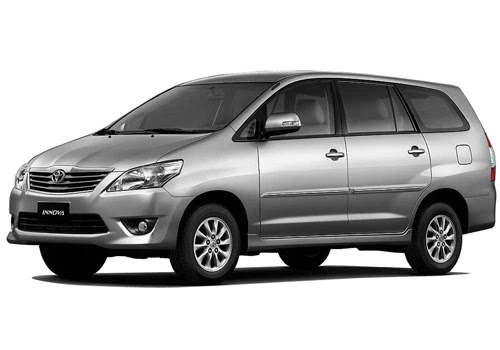 |
| All These Cars To Be Discontinued In 2023 |
A quick list of cars slated to be axed due to the upcoming emission and safety norms…
2022 has been the best year since the pandemic for automakers. A large number of new models and automotive technologies debuted this year. 2023 is going to be even better, starting right from the Delhi Auto Expo in January. 2023 will also see the rolling out of stricter new emission norms. This could not be too pleasant news for the manufacturers, as keeping pace with would require a lot of time, effort and money in R&D. Citing these as reasons, many manufacturers have already hinted at discontinuing some of their existing, popular models. Here are a few such sedans, hatchbacks, MPVs and SUVs that would face the axe next year.
Mahindra
Mahindra has been on a winning streak this year, introducing multiple SUVs into the market like the Scorpio N, Scorpio Classic and XUV 400, topping the sales charts throughout the year. Some of the previous models, however, have become outdated and are struggling to garner sales. Among these, Marazzo, Alturas G4 and KUV100 have been confirmed to be discontinued in 2023. This goes against Mahindra’s previous confirmation of keeping the Marazzo.
Honda
Honda will be discontinuing its diesel portfolio in 2023. Diesel versions of the 5th gen Honda City and Honda Amaze will be axed next year. Older models like Honda Jazz, Honda WR-V and the fourth-gen Honda City will also be shelved. Reports also suggest that Honda would bring some new names into the Indian market, such as the HR-V crossover.Read Also : 10 Best Car Insurance Companies in India
Skoda
Two of Skoda’a Popular sedans- Superb and Octavia will see the end of their production in February next year. Skoda’a recent launches such as Kushaq, Slavia and Kodiaq will continue to be on sale.Nissan
Nissan’s mid-sized SUV, Kicks has been struggling to perform in the market even with the many updates it received over the years. Even the introduction of a turbo petrol engine could not push the Kicks into market success. The manufacturer is likely to end the production of this SUV this new year.
Toyota
Toyota’s latest MPV, the Innova Hycross is only available with petrol engines. In order to nurture the sales of the Hycross, Toyota might kill the petrol versions of the Innova Crysta. The diesel Crysta could continue on sale alongside the Hycross, due to healthy demands.Tata Motors
Reports suggest that Tata Motors might discontinue the 1.5L Diesel variants of their premium hatchback-Altroz. The hatchback is currently available with NA petrol, turbo petrol and diesel engines, and with both manual and automatic transmissions. Altroz with its 1.5L diesel engine, used to offer decent value proposition in the diesel hatchback segment, backed well by the limited number of players in the game. With the new emission norms incoming, making the diesel (that honestly feels sub-par in refinement to that of the competitor) would not be financially viable, and the same has led to the carmaker’s decision to kill it.Renault
Renault Kwid is quite popular in the Indian market and is still the manufacturer’s most affordable offering. But the RDE norms will shoot up the price of this car. Renault is thus likely to discontinue the 800cc Kwid while still keeping the 1.0L petrol version on the roll.Maruti Suzuki
Maruti might discontinue the Alto 800, as making it compliant with the new RDE norms will increase its price drastically, and make it lose its edge in the process. Other low-end cars could also face the same fate in the time ahead, the details of which are not yet known, not confirmed. MSIL’s RC Bhargava had previously hinted that the manufacturer could quit small car business, if the revised policies around safety and emission force them to.Hyundai India
The diesel variants of the Hyundai i20 and Verna will be discontinued next year. The i20 simply has the most refined and the best diesel engine it its segment and makes up for a clean-kitted, efficient premium hatchback for families, something we had detailed in our first drive review. The reworking demanded by the new policies is what’s forced the carmaker on the kill, backed by the general downward trend in the hatchback space. However, the Verna is not something we had expected to meet this fate. Even recent rumours had suggested that the upcoming Verna would host petrol, turbo petrol and diesel engines. If the diesel’s to be axed on this, the new Verna could definitely lose some edge over its competition.Read Also : Tesla's Model 3 earns insurance industry's top safety rating
2020 Hyundai i20 Review, specs, mileage, price
RDE (Real Driving Emissions) Norms: What Are They?Currently, particulate emissions are determined by replicating road scenarios in a laboratory environment. But these are not as accurate as readings from real-world scenarios. Introduced back in 2020, the BS6 norms are getting a major update in its phase 2, as they now suggest automakers to measure the pollutants a vehicle emits during normal driving conditions. A Portable Emissions Measurement System (PEMS) is used for this.
Selective Catalytic Reduction (SCR) systems are necessary for all diesel vehicles as part of RDE regulations, although these systems come at an additional expense to automakers and can even be too expensive for smaller vehicles. SCR decreases nitrogen oxide (NOx) tailpipe emissions by reducing particulate pollutants into nitrogen, water, and trace amounts of carbon dioxide with the help of Diesel Exhaust Fluid (AdBlue).
Vehicles will now require an onboard self-diagnostic system to track emissions in real-time. The device will continuously monitor particulate levels on important components, such as the catalytic converter and oxygen sensors. When the vehicle’s emissions go beyond the acceptable limits, a warning light will appear to let you know it needs to be serviced. Putting this new system into effect is going to be expensive, which will result in price hikes for vehicles and diesel engines would be the worst affected.



)


